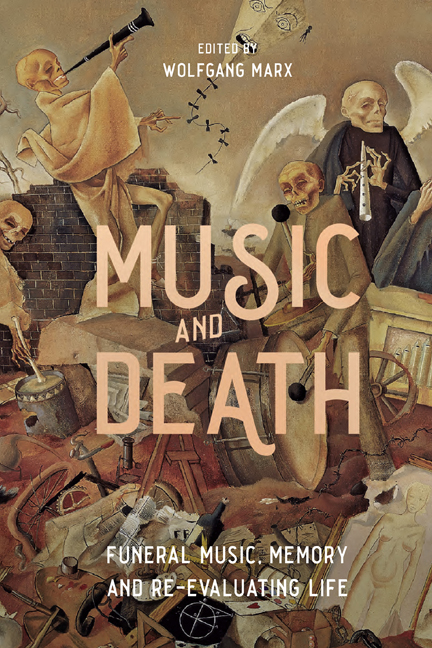7 - Leaving the Table: Intimations of Mortality in Leonard Cohen’s Late and Posthumous Work
Published online by Cambridge University Press: 12 January 2024
Summary
If death is a universal experience understood in culturally specific ways, one of the cultures worth exploring is the production and reception of artists’ late work. While there has long been a critical discourse around the late work of painters, writers, and classical composers, it is only relatively recently that the late work of popular musicians has received extensive scrutiny. This is partly due to the late acceptance of popular music as a ‘serious’ art to be treated analogously to others, and partly to the ageing of many of the musicians responsible for producing the work that allowed this sea change in the first place, notably those musicians who began their careers in the aftermath of the rock and roll revolution of the mid-twentieth century. Over roughly the past two decades, there has been a growth in the extent to which work by older popular musicians is received by critics, fans, and fellow artists as being about (or explicable only in the context of) life experience, longevity, and mortality. This can be witnessed in media discussions of late albums by artists such as Leonard Cohen, Bob Dylan, David Bowie, Johnny Cash, Joni Mitchell, Paul Simon, and the Rolling Stones. If late works appear – as they normally do – while the artist is still alive, the artist is invariably heard in a state of suspension, as being between life and death. Each release is heard as providing a stamp of finality, the artist's summing-up or closing words. It is interesting to see how this discourse is then folded into the posthumous discussion when, as was the case with Bowie and Cohen, the artist dies shortly after the release of the ‘final’ album. At the same time, final albums are never the last word, because recording technology means that there will always be new ways of hearing late voices; recorded voices are both always already dead (captured as they disappeared from bodies) and undead, available for reclamation through what Jason Stanyek and Benjamin Piekut call ‘technologies of the intermundane’.
- Type
- Chapter
- Information
- Music and DeathFuneral Music, Memory and Re-Evaluating Life, pp. 134 - 150Publisher: Boydell & BrewerPrint publication year: 2023



